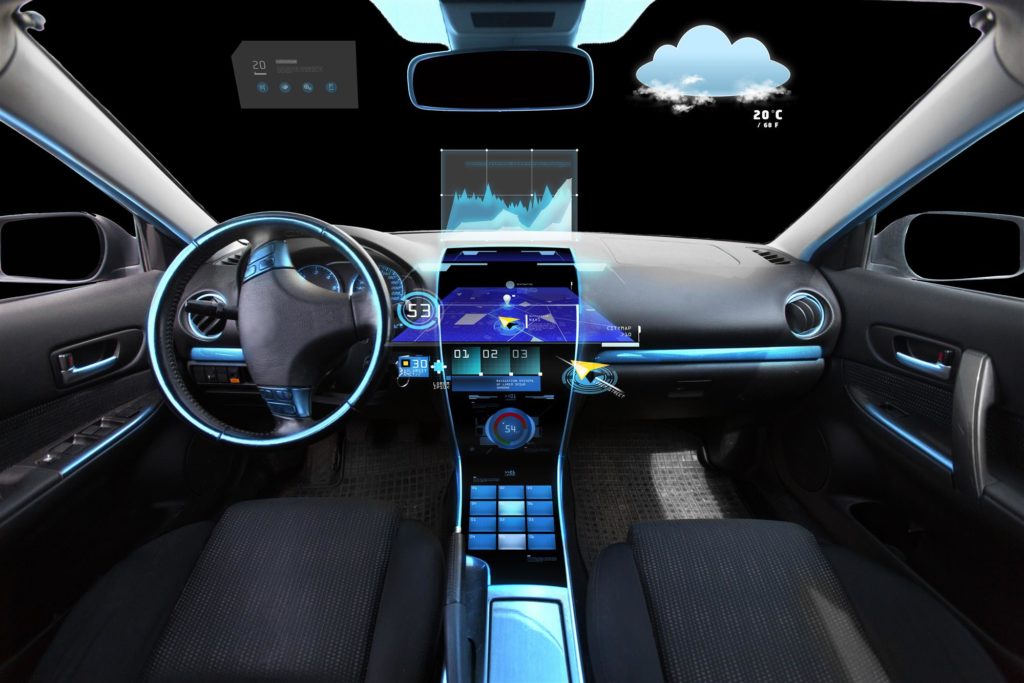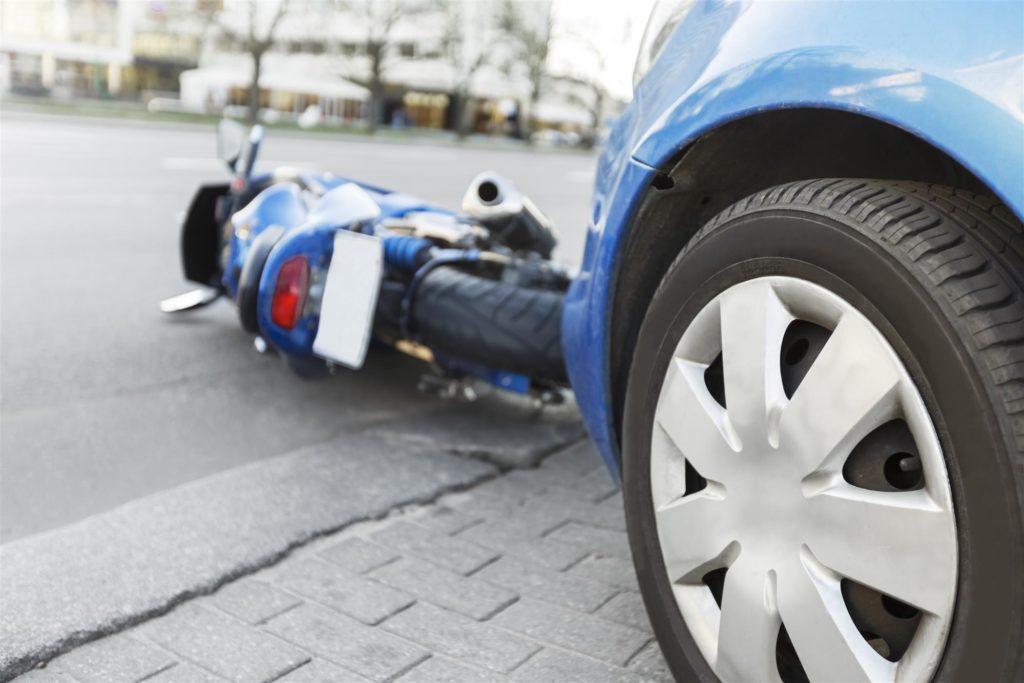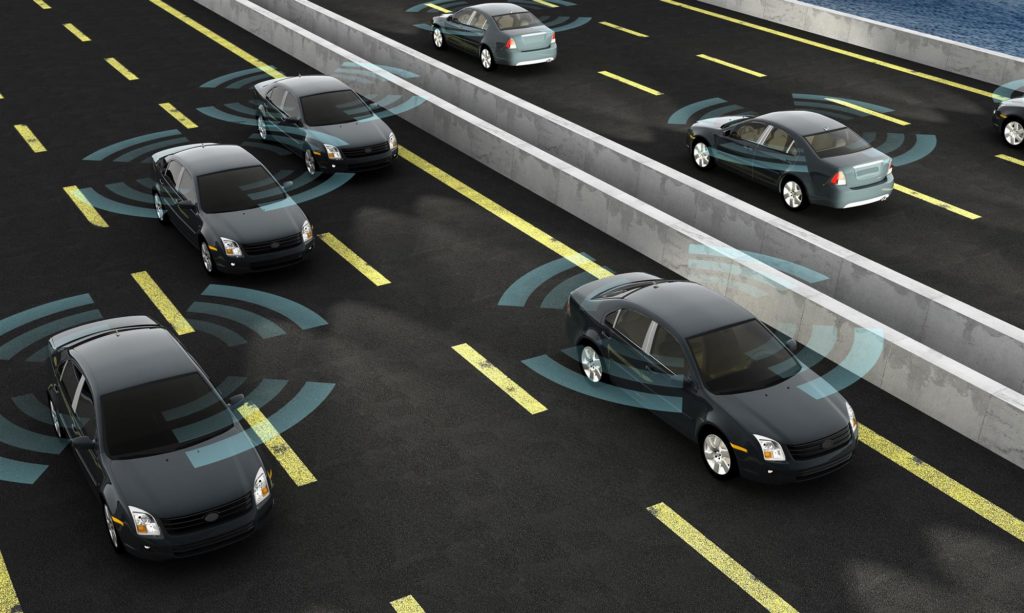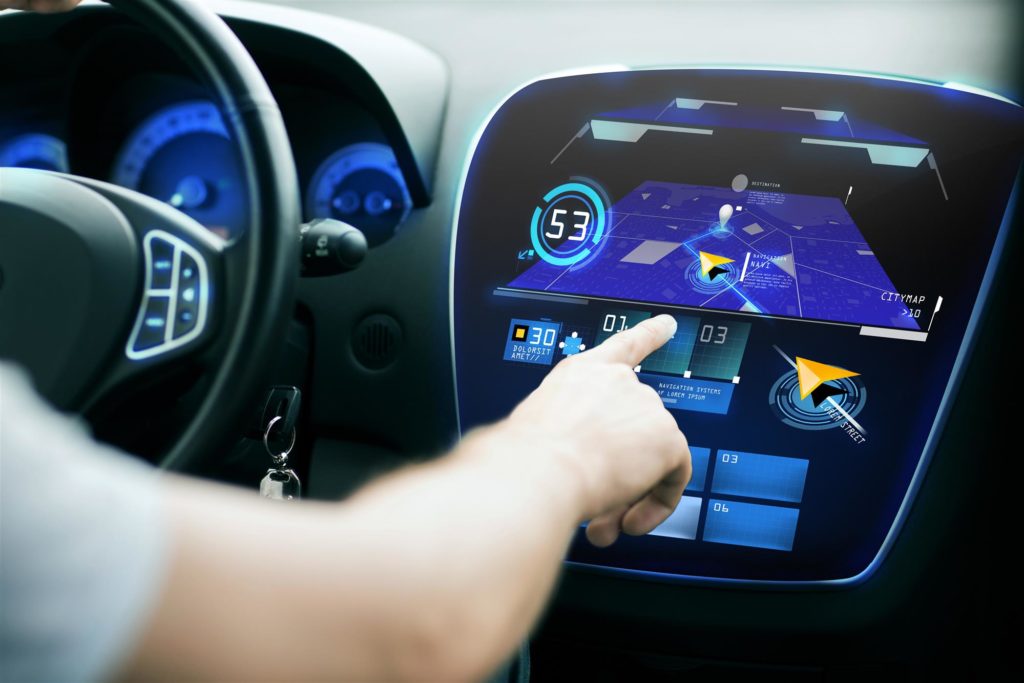Can you imagine a world without car wreck lawyers? Carmakers can. If only the future ever went as planned.
 The Wave of the Future?
The Wave of the Future?
Human drivers have enough trouble spotting motorcycles, with their small frames, fast movements, and agile handling, but can smart cars do any better? Tech companies and car manufacturers believe they can. They’re currently pioneering new imaging and sensor technology that may solve the car/bike problem once and for all, allowing automated cars to detect two-wheelers and respond accordingly.
Does that mean we’ll no longer need motorcycle accident lawyers in the future? Not so fast. There’s still a lot of work to be done, and current models have disappointed expectations when it comes to car/motorcycle interactions. Before you delete the number for the attorneys at Houston TX Auto Accidents (SMS Auto), familiarize yourself with some of the latest facts, trends, and prognostications regarding automated driving technology.
A Risky Proposition
Motorcyclists account for less than one percent of the all the vehicle miles driven in the United States; nevertheless, they suffer roughly 14 percent of all traffic deaths (14.2 percent in 2015).1 All told, cyclists are roughly 27 times more likely to die in a traffic accident and six times more likely to be injured than people in other types of vehicles.2
When you consider that traffic deaths, as a whole, climbed precipitously between 2014 and 2015, rising 8.3 percent in one single year, then the total number of motorcycle deaths (approx. 5,000) should be a cause for concern.3
The reason for the spike is probably twofold: A burgeoning labor force (more workers equal more drivers, and more drivers equal more accidents), as well as the proliferation of distractions (think smartphones and tablets). Whatever the cause, American roads have become a dangerous place, particularly for two-wheelers. It’s no wonder automakers, government agencies, and drivers are desperately looking for solutions.
The End of Traffic Accidents?
Automated vehicle technology is still in its infancy, but that hasn’t stopped carmakers from touting the safety benefits of self-driving cars. When robots take over from humans, fewer motorcyclists will lose their lives, says Karl Viktor Schaller, the chief of development at BMW Motorrad.
Not convinced? Take the case of left turns. One out of five motorcycle deaths, or 1,000 deaths, occurs when a car makes an unprotected left and crashes into an oncoming motorcyclist. That’s because humans frequently misjudge the speed of motorcycles or fail to see them at all.
Automated cars won’t make that mistake, say experts. Instead, they’ll use sensor and radar technology to accurately identify and track motorcycles as they barrel down the road, and that’s just the first step along the journey to fully automated roads.
One day, motorcycles will be able to communicate with surrounding vehicles, alerting nearby cars to their presence and announcing their speed so that other vehicles can calibrate their timing accurately. In other words, automated technology will act as a sort of “electronic safety cage” around each and every motorcycle.
When Vision Meets Reality: The Tesla Controversy
Unfortunately, there’s often a wide gulf between vision and reality. Take the case of Tesla’s smart car technology. The European release of the Tesla S created great excitement for many reasons but, in large part, because of its handy autopilot feature. Designed to provide limited driver assist, it has since raised concerns over cyclist safety.
One recent controversy was sparked by an incident in Drammen, Norway. A partially automated car rear-ended a motorcyclist, seriously injuring her. In theory, robot cars are designed to avoid such reckless behavior; it’s one of their main selling points. So far, reality hasn’t measured up to the hype.
Government bodies throughout Europe have gone so far as to label the Tesla S “a significant traffic hazard” after numerous tests revealed shortfalls in the autopilot system. As a result, European motorcycle associations have lodged formal complaints against the brand. They’re asking government officials whether they’ve adequately tested the vehicle to gauge its response to two-wheelers.
Tesla isn’t the only company struggling with the challenges of automated technology. There’s also the case of Google’s self-driving car, which has had its fair share of scrapes, including a low-speed collision with a bus in Mountain View, California.
Smart Cars: A Cyclist’s Worst Nightmare?
If Tesla’s failures are indicative of all autopilot technology, then recent incidents could undermine the claim that smart cars will all but eliminate traffic deaths. That being said, even smart cars that fall below expectations might be an improvement over the current state of affairs.
You don’t need vast statistical databanks to appreciate why; simply look around—distractions have hit an all-time high. Already, many drivers act like passengers in their non-driverless cars, texting away while the road (and its hazards) passes them by—or hits them in the fender, as the case may be.
Of course, that does little to reassure drivers of two-wheelers, who feel singled out by the apparent lack of adequate sensing technology. Add to that the introduction of automated motorcycles, which threatens to rob bikers of the joy and freedom of the open road—typically their very reason for choosing a bike in the first place—and the future may not look so rosy after all.
Of course, technology will improve, and roads will no doubt get safer as distracted drivers exit stage left and ever-vigilant robots enter stage right. In the meantime, it’s important for motorcyclists to practice basic safety precautions and understand their legal rights.
The upshot? Bikers should still know the number of a good auto accident attorney, now and in the driverless future. If the current technology proves anything, it’s that automated cars may lower the risk of fatal accidents, but they won’t eliminate it altogether. The question of the future won’t be whether to call a lawyer, but whom to sue: the other driver, the automaker, or a third-party manufacturer of smart car technology?
Beyond Prediction: Preparing for the Future
Whether or not smart cars are all they’ve cracked up to be, there’s little doubt that they represent the driving experience of the future. Just ask the automakers themselves—the most reliable sources when it comes to predicting the future of automotive technology (most of which is already on the drawing board).
Both Mark Reuss, head of product development at General Motors Co., and Elon Musk, CEO of Tesla Motors Inc., say human drivers are on their way out and robot drivers are on their way in. They only differ as to the exact timing of the crossover: Ruess thinks the switch will be nearly complete by 2020 and fully complete by 2025; Musk believes half of the cars made between 2022 and 2023 will be fully autonomous.1
Autonomous motorcycles may not roll off the factory lines for at least another decade after that, but improved safety features will gradually make their way onto existing models much sooner. Although fully driverless bikes would most certainly take the fun out of biking, it’s hard to argue against the introduction of added safety features that increase the chances of surviving the next joy ride.
Motorcyclists: Know Your Rights
If you’ve been injured in a motorcycle accident or if someone you love has died in a collision, get in touch with an experienced motorcycle accident lawyer at Houston TX Auto Accidents (SMS Auto). As a dedicated vehicle accident law firm, we’ve represented thousands of clients who have experienced similar tragedies.
Whether you’ve been injured because of the negligence of a human driver or the malfunctioning of an autonomous vehicle, we can help you fight for your legal right to compensation. Contact us today to receive a free consultation from a skilled and experienced car accident lawyer.
Sources
- Insurance Journal. “How Self-Driving Cars Will Make Motorcycles Safer.” <http://www.insurancejournal.com/news/national/2016/10/11/428971.htm>
- National Highway Traffic Safety Administration (NHTSA). “Motorcycles.” <https://www.nhtsa.gov/road-safety/motorcycles>
- Insurance Information Institute. “Motorcycle Crashes: May 2017.” <http://www.iii.org/issue-update/motorcycle-crashes>

 Over 300 Google 5 Star Reviews
Over 300 Google 5 Star Reviews The Wave of the Future?
The Wave of the Future?












Leave a Reply